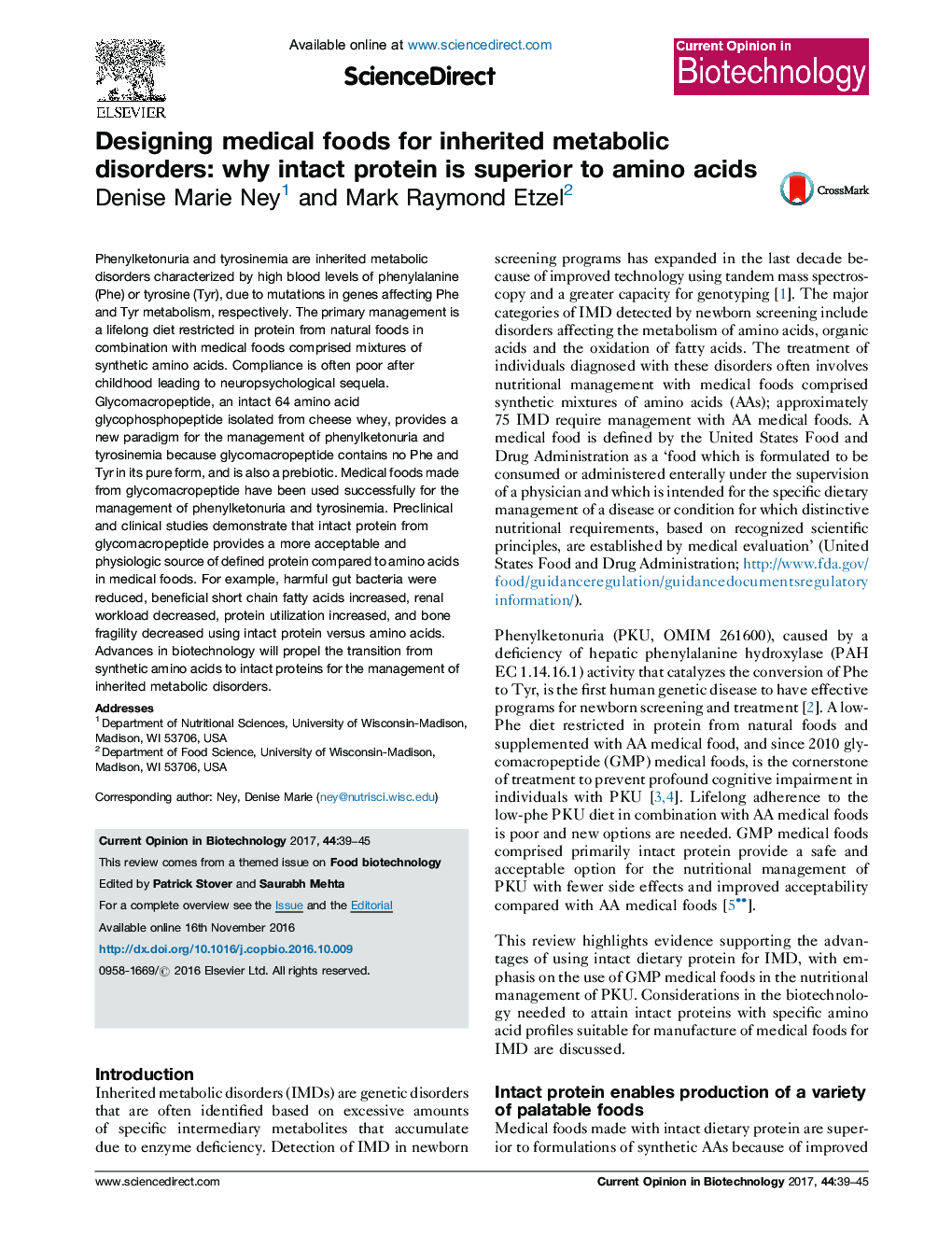| کد مقاله | کد نشریه | سال انتشار | مقاله انگلیسی | نسخه تمام متن |
|---|---|---|---|---|
| 6451532 | 1416327 | 2017 | 7 صفحه PDF | دانلود رایگان |
• Inherited metabolic disorders of proteins utilize amino acid medical foods.
• New glycomacropeptide medical foods can manage well phenylketonuria and tyrosinemia.
• Glycomacropeptide medical foods reduce skeletal fragility, renal workload and hunger.
• Glycomacropeptide medical foods better support human physiology and organ function.
• Intact proteins like glycomacropeptide are preferred to amino acids in medical foods.
Phenylketonuria and tyrosinemia are inherited metabolic disorders characterized by high blood levels of phenylalanine (Phe) or tyrosine (Tyr), due to mutations in genes affecting Phe and Tyr metabolism, respectively. The primary management is a lifelong diet restricted in protein from natural foods in combination with medical foods comprised mixtures of synthetic amino acids. Compliance is often poor after childhood leading to neuropsychological sequela. Glycomacropeptide, an intact 64 amino acid glycophosphopeptide isolated from cheese whey, provides a new paradigm for the management of phenylketonuria and tyrosinemia because glycomacropeptide contains no Phe and Tyr in its pure form, and is also a prebiotic. Medical foods made from glycomacropeptide have been used successfully for the management of phenylketonuria and tyrosinemia. Preclinical and clinical studies demonstrate that intact protein from glycomacropeptide provides a more acceptable and physiologic source of defined protein compared to amino acids in medical foods. For example, harmful gut bacteria were reduced, beneficial short chain fatty acids increased, renal workload decreased, protein utilization increased, and bone fragility decreased using intact protein versus amino acids. Advances in biotechnology will propel the transition from synthetic amino acids to intact proteins for the management of inherited metabolic disorders.
Figure optionsDownload high-quality image (176 K)Download as PowerPoint slide
Journal: Current Opinion in Biotechnology - Volume 44, April 2017, Pages 39–45
